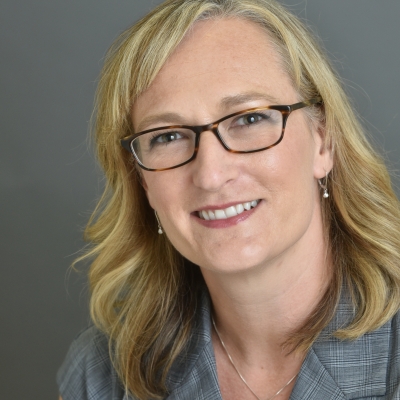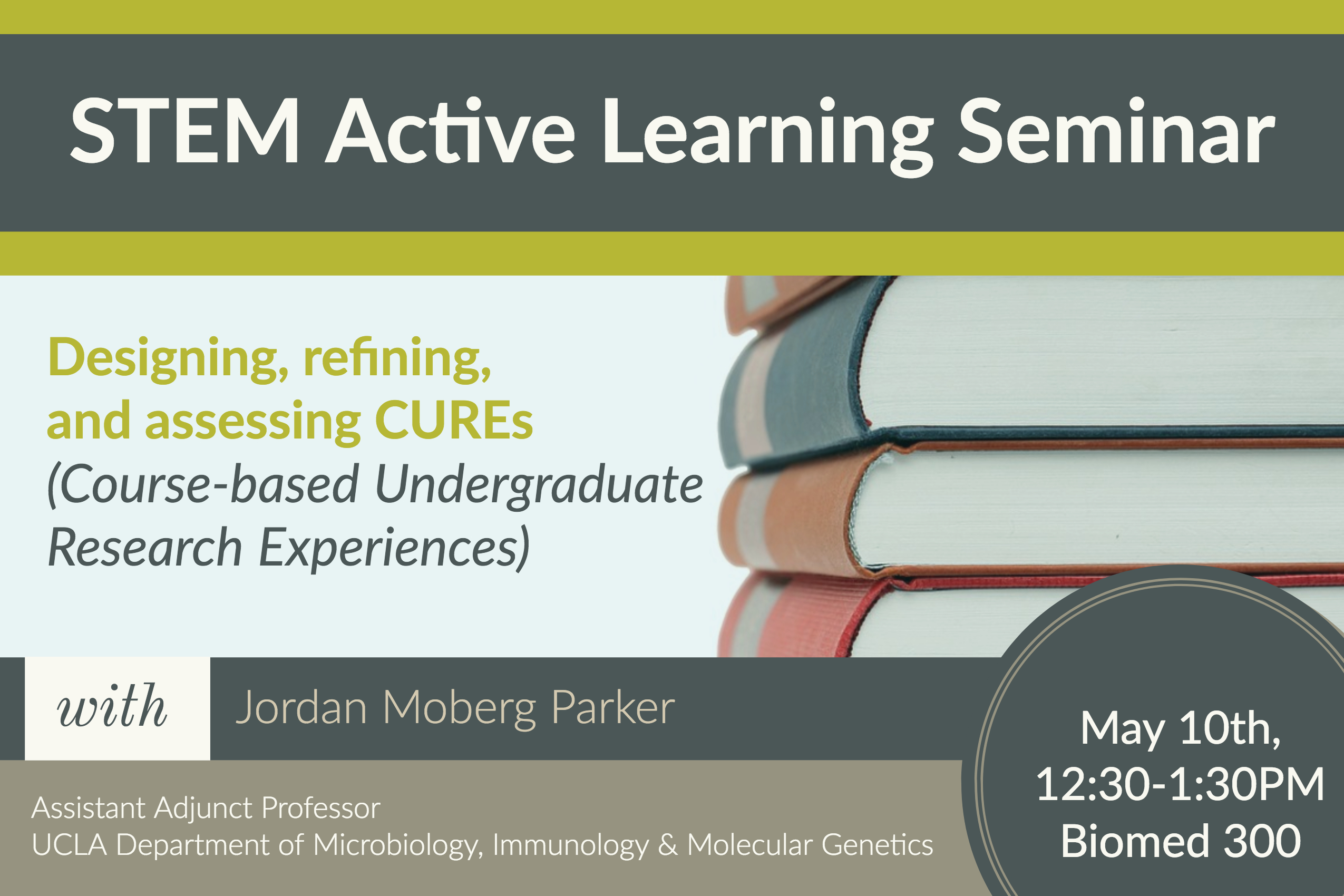Designing, refining, and assessing CUREs (Course-based Undergraduate Research Experiences)
|
Speaker: Jordan Moberg Parker, Assistant Adjunct Professor. UCLA Department of Microbiology, Immunology, & Molecular Genetics Thursday, May 10th 12:30-1:30pm, Location: Biomed 300, UCSC |
 |
Description: Designing, refining, and assessing CUREs
Numerous studies have reported on the powerful benefits to STEM undergraduates engaging authentic research experiences, which can be broadly defined as using the process of science to ask novel questions (Spell et al. 2014). However, the issue of capacity can be a barrier, especially at large universities. Course-based undergraduate research experiences, or CUREs, have emerged as a strategy to not only scale authentic research to many students, but to also provide a more inclusive pathway for students that may not otherwise participate in research (Auchincloss et al. 2014). CUREs can also be attractive to faculty for a number of reasons, including providing tangible benefits related to furthering their own research, and intangible benefits associated with increased satisfaction with teaching (Shortlidge, Bangera, and Brownell 2017). In this presentation, I will share a framework that was used to design and assess a successful research-based laboratory curriculum for Life Science majors, with multiple CUREs tailored to diverse research interests (Shapiro et al. 2015). In addition, I will discuss some benefits and drawbacks of implementing a pre-developed CURE compared to developing new CUREs. Finally, I hope to share some insights into the process of refining and evolving CUREs to meet the changing needs of students and faculty by incorporating new research questions, technologies, and collaborations.
About Jordan: Jordan Moberg Parker is the Director of the Microbiology, Immunology & Molecular Genetics (MIMG) upper-division, research-based laboratory curriculum. She teaches Research Immersion courses in Microbiology and Virology. Dr. Parker received her B.S. in Microbiology from California Polytechnic State University in San Luis Obispo in 2003. She earned her Ph.D. in Molecular Biology from the University of California, Los Angeles (UCLA) in 2012 for her work with Dr. Arnold J. Berk on viral model systems for gene delivery and transcriptional control.
Dr. Parker is active in the fields of the Scholarship of Teaching and Learning (SoTL) and Discipline-Based Education Research (DBER). Dr. Parker was a 2014 ASM Biology Scholar, an NSF sponsored program to advance the scholarship of teaching and learning in biology, where she participated in a year-long Assessment Residency devoted to developing measurable student learning outcomes. She is also a facilitator and mentor for the Biology Scholars DBER Program and has presented her work at national science education conferences. As a CEILS Instructional Consultant, Dr. Parker leads workshops, consults with faculty and teaching assistants interested in using the CREATE process to facilitate student competencies reading and analyzing scientific literature, and works with instructors to design assessments aligned to course or curricular outcomes.

